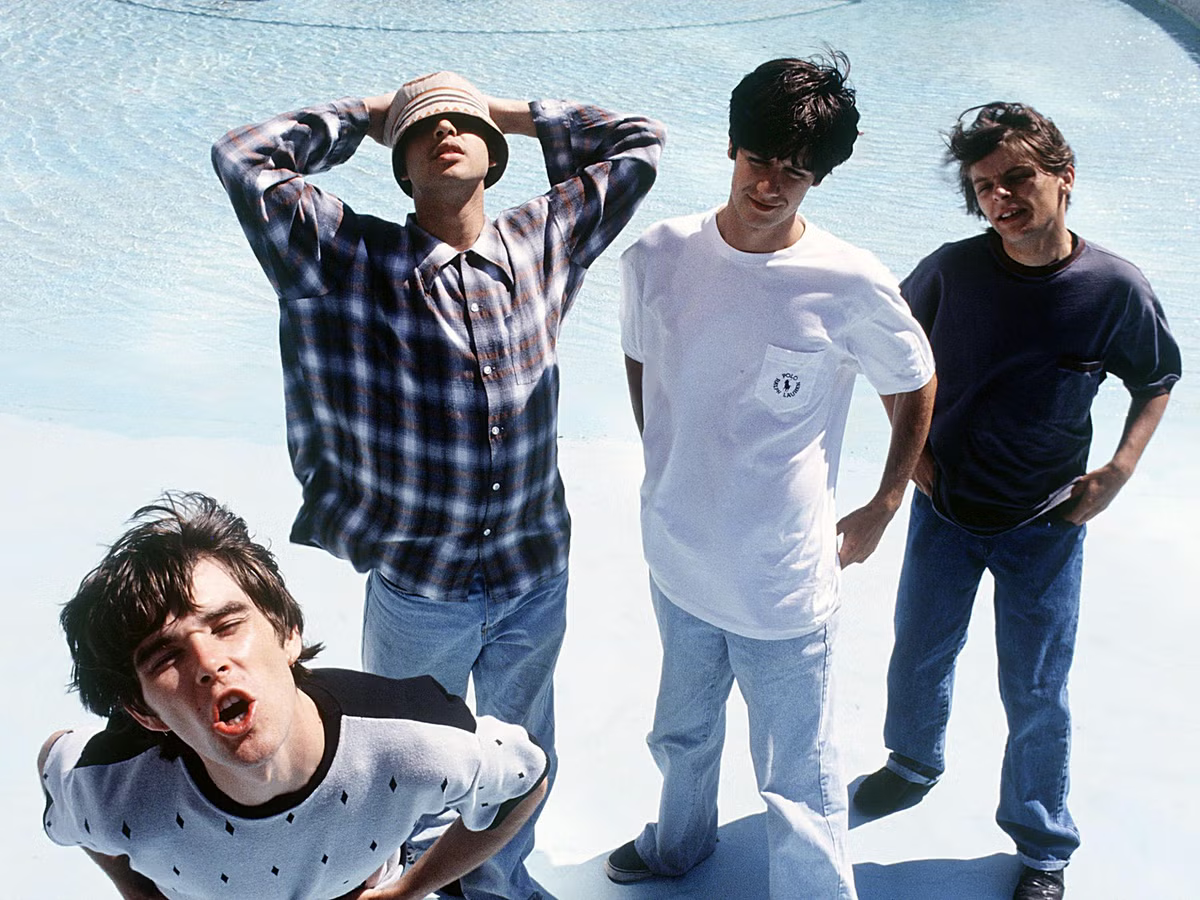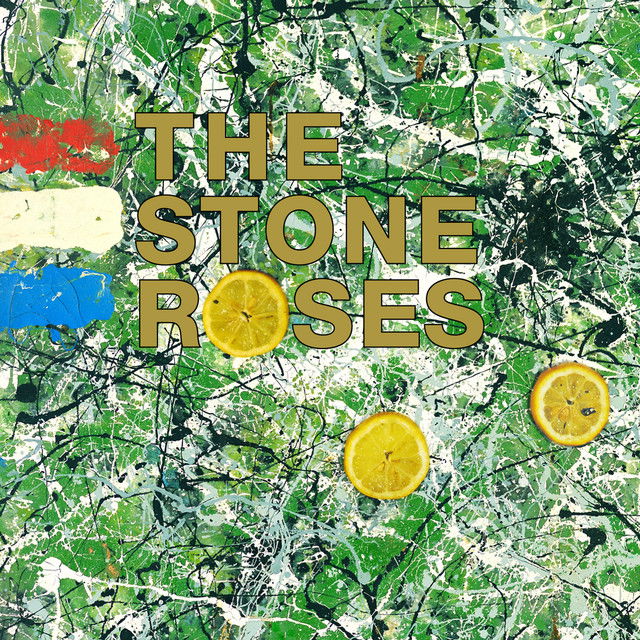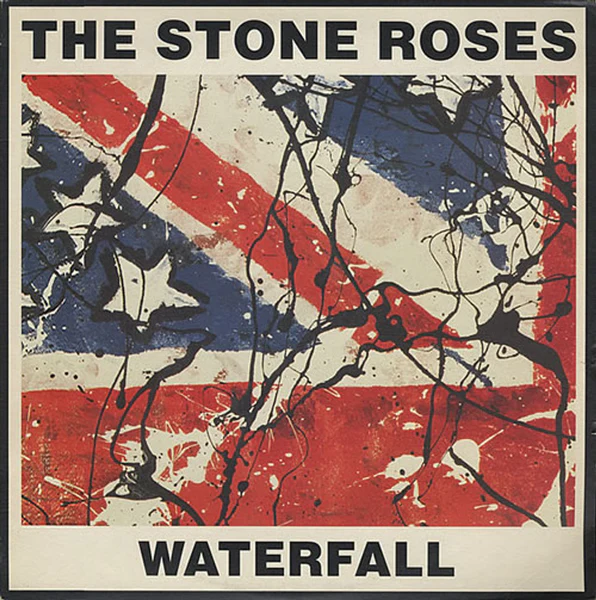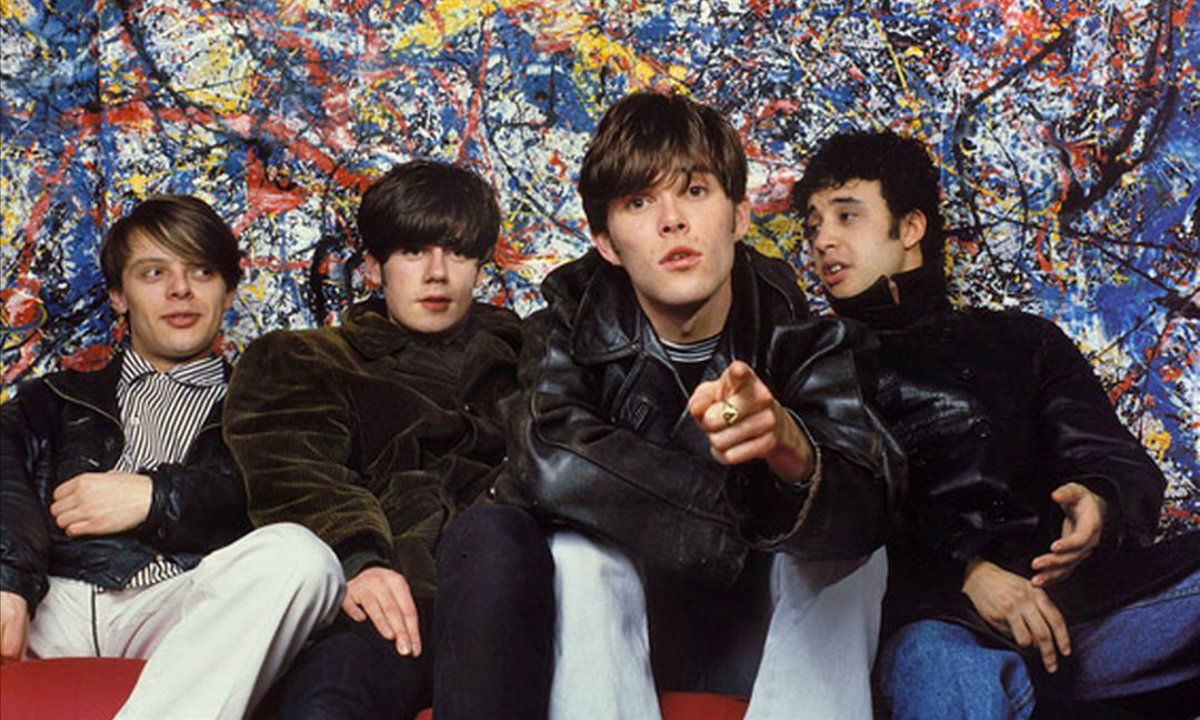The Past Was Yours, But the Future’s Mine

This post was one of the first things I ever wrote for this website, way back in early 2023. I was never completely satisfied with it so here’s the updated version.
When The Stone Roses released their self-titled debut album in 1989, it wasn’t just a record. It was a statement of intent. Across the U.K., a generation worn down by economic hardship and political disillusionment suddenly had something to rally around: a fresh sense of optimism, a streak of rebellion, and a renewed feeling of unity. “The past was yours, but the future’s mine,” they declared, a line that didn’t just reflect the moment, but helped define it.
For the first time in years, Thatcher’s children glimpsed hope. The band’s swaggering confidence reverberated through every venue they played, offering young people a lifeline out of the stagnation and joblessness that had shaped their lives. The Stone Roses weren’t just speaking for a generation they were inspiring the next. Their legacy echoes through the music of Oasis and Blur, and carries on in the sound of bands like Arctic Monkeys and The Courteeners.

The Stone Roses cast themselves as the saviors of a generation starved of hope. For young people who felt ignored, disillusioned, and defeated, their music was more than a soundtrack. It was a rallying cry. It urged them to dream boldly, live defiantly, and most of all, to believe in the possibility of something better. Their sound transcended tribal lines. Indie kids, students, ravers, goths, every subculture found a place in their orbit, united by a shared hunger for change and escapism.
Their anthems shimmered with sunshine and swagger, but beneath the euphoric melodies was a steely political edge. Songs like “Elizabeth My Dear” weren’t mere provocations, they were bold, unambiguous attacks on the establishment. The lyrics captured the tension and unrest of 1989 a year of mounting frustration, but also of seismic change. The Berlin Wall came down. The Soviet Union began to unravel.
In the shadow of Thatcherism, The Stone Roses offered more than just music. They offered meaning, defiance, and a sense of pride.
The Album That Defined an Era
When we talk about The Stone Roses, we’re not just talking about an album, we’re talking about a cultural flashpoint. Their self-titled debut wasn’t merely a collection of songs; it was a revolution disguised as a record. Released in 1989, its 11 tracks fused 60s psychedelia with jangling indie guitars, funk-infused basslines, and a loose, danceable rhythm section that sounded like nothing else at the time, and still feels remarkably fresh all the years later.
The magic lay in the chemistry. Ian Brown’s cryptic, charismatic vocals. John Squire’s shimmering, intricate guitar textures. Mani’s groove-heavy basslines. Reni’s genre-defying drumming part funk, part jazz, all precision. Together, they created a sound that was both swaggering and spiritual, rooted in the past but bursting with the promise of the future.
The album’s brilliance is found not just in its innovation, but in its emotional range. 'I Wanna Be Adored' opens the record with eerie confidence, a slow-burning declaration of intent that morphs into something hypnotic. 'She Bangs the Drums' is pure euphoria a bright, melodic rush that captures the joy of youthful idealism. 'Waterfall', with its cascading guitar riffs and lyrical escapism, feels like a moment of pure liberation, while its seamless transition into 'Don’t Stop' a reversed, dreamlike reworking—was the kind of psychedelic experimentation that few other bands dared attempt at the time.

Then there’s 'Made of Stone', one of the band’s most enduring tracks—melancholy, mysterious, and emotionally charged. 'This Is the One' feels like a rallying cry, full of tension and release, while 'Elizabeth My Dear' delivers a sharp political jab in under a minute, cloaking its anti-monarchist message in the melody of 'Scarborough Fair'. And of course, 'I Am the Resurrection' closes the album with an explosive two-part finale four minutes of righteous defiance followed by four more of blissed-out instrumental jamming that pointed the way to the Madchester sound.
As Clash Magazine put it, the album remains “an overwhelming statement of working-class pride.” It wasn’t music for the elite or the critics it was for the dreamers, the dancers, the disillusioned youth looking for meaning and escape.
Even its cover is iconic: John Squire’s Jackson Pollock-inspired, French Revolution-themed artwork perfectly reflects the rebellious energy within. Though the album underperformed commercially at first, its legacy has only grown. Today, it's rightly hailed as one of the greatest British albums of all time.
'The Stone Roses' set the blueprint for what followed—bridging the gap between guitar-driven rock and the rhythm and movement of dance culture. It was introspective yet anthemic, nostalgic yet forward-looking. More than just influential, it remains essential.
The Whole World in their Hands
Fast forward to May 27, 1990. Riding high on the success of their debut album 'The Stone Roses' and their genre-defying single 'Fools Gold', the band decided to mark the moment with something monumental. The venue? Spike Island a reclaimed chemical waste site in Widnes. To outsiders, it may have seemed like a bizarre choice. But in the context of Britain’s burgeoning rave culture, it made perfect sense. This wasn’t just a concert; it was a celebration of the music , of a culture, of a snapshot in time. It marked the end of Tory Rule, celebrated the rise of rave culture, and gave those songs a platform.
Thirty thousand fans descended on the industrial banks of the Mersey Estuary that windswept bank holiday weekend, each paying £14 for a chance to witness what had been hyped as the gig of a lifetime. The setlist was stacked with fan favourites, and the atmosphere buzzed with anticipation. For some, it was transcendent. An almost spiritual convergence of sound, youth, and rebellion. For others, the open-air acoustics and swirling wind diluted the experience.
But the details didn’t really matter. Spike Island wasn’t about flawless sound or technical perfection it was about what the event represented. It was the merging of worlds: indie and acid house, guitars and turntables, Manchester swagger and Liverpool spirit. It was a euphoric stand against the fading grip of Thatcherism, a cultural high point at a time when optimism still felt tangible. Ian Brown’s bold claim that “The Roses will be bigger than The Beatles” felt less like bravado and more like a statement of belief.
The performance itself was imperfect but perfection was never the point. Spike Island became legendary not because of what happened on stage, but because of what it symbolized: unity, possibility, and a moment when it felt like the youth had taken control of the future.

Despite the grandeur of Spike Island and the brilliance of their debut, The Stone Roses never fully capitalised on their potential. Legal battles with their label, Silvertone Records, stalled progress for years. Internal frictions simmered. Their second album was delayed, and the scene they helped spark moved on without them. By the time their long-awaited follow-up, 'Second Coming', finally arrived in 1994, the musical landscape had shifted dramatically.
Britpop was in full bloom. Bands like Oasis, Blur, and Pulp many of whom had taken direct inspiration from The Stone Roses now dominated the airwaves and tabloid headlines. The Roses, once pioneers, suddenly seemed like relics of a moment that had already passed. 'Second Coming' had its moments—tracks like 'Ten Storey Love Song' and 'Love Spreads' showed flashes of brilliance but the album was darker, heavier, and more blues-inflected than fans expected. It lacked the effortless euphoria of their debut, and critics were divided.
Things inside the band were unraveling. Drummer Reni left in 1995, disillusioned and frustrated. The following year, guitarist John Squire departed as well, citing creative differences. By late 1996, The Stone Roses had quietly disbanded, their dream dissolving not with a bang, but a sigh.
For many fans, it was a heartbreak laced with frustration. The band had changed the face of British music, only to implode before they could truly cement their legacy. Yet in that short window from 1989 to 1990 they created something transcendent. A record, a moment, a myth. A promise of what could be.
Why they Still Matter
The Stone Roses remain more than just a footnote in British music and culture. They’re a cornerstone. Decades on, their debut album still sounds timeless. The fusion of jangly guitars, infectious grooves, and poetic, often cryptic lyrics gives the record an ageless quality. It doesn’t feel like a product of the late 1980s it feels eternal.
Those songs still speak to the youth of today. Tracks like 'Waterfall' and 'Made of Stone' capture universal themes: escape, rebellion, self-discovery, and the search for something more. These aren’t relics of a bygone era, they’re anthems for anyone who’s ever felt out of place, disillusioned, or desperate to break free. The band’s music transcends its time because its spirit is rooted in emotions that every generation can understand.
The Stone Roses emerged at a pivotal moment in British history a time of political tension, economic hardship, and cultural flux. For a disenchanted youth, their music was both a lifeline and a battle cry. Lines like “The past was yours, but the future’s mine” still hit with the same force today, challenging listeners to reclaim their narrative and shape their own destiny.
Every generation discovers The Stone Roses anew. A teenager stumbling upon that album today will feel the same sense of revelation that fans did in 1989. It’s a coming-of-age record—one that doesn’t just soundtrack youth but helps define it. It’s been the backdrop to countless personal revolutions, heartbreaks, friendships, and late-night epiphanies.

Their influence stretches far beyond their short discography. Liam Gallagher has often credited The Stone Roses with changing his life. Noel Gallagher famously said of their debut, “It influenced the people who influenced the people who influenced the people who are influencing people these days.” It’s a legacy that runs like a thread through British music from The Sex Pistols to The Jam, The Smiths, The Stone Roses, Oasis, The Verve, and beyond.
As NME so perfectly put it: “Many great songs contain a meaning that’s poignant whenever and wherever they’re played because they speak to fundamental aspects of the human condition: Pulp’s 'Common People', LCD Soundsystem’s 'All My Friends', Bruce Springsteen’s 'Born To Run'. On 'The Stone Roses', there are 11 of them. Optimism and hope reign supreme.”
Thank you for reading x